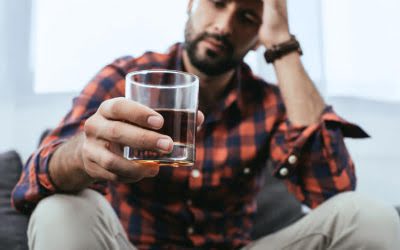Sobriety is a commitment to a new lifestyle and something that should be celebrated for years to come. Drinking non-alcoholic beer can not only break sobriety, but it can also open an individual up to other dangers such as peer pressure and cravings. There are a lot of changes that occur during the first six months. Social groups change, habits are rewritten, and your brain and body are rewiring old coping mechanisms.
- Furthermore, the 12-step model takes their sobriety “one day at a time” and promotes daily meetings as part of their recovery plan.
- When you know your addiction triggers, it’s best to avoid them as much as possible.
- So how are you going to accomplish that without a recovery community?
- These benefits go far beyond just physical health—they impact nearly every area of your life.
Develop Healthy Habits for Maintaining Sobriety
- Having specific things you intend to achieve can motivate you to keep going.
- Tattoos are always a personal choice, and no single tattoo is universal for those living their best sober lifestyle.
- The physical challenge and social aspect provide a healthy alternative to drinking.
- By identifying triggers, building a support network, and planning alcohol-free activities, you’re setting yourself up for a successful sober Christmas.
- Depending on the type of dependency, PAWS can last from six months to two years after you stop using drugs or alcohol.
These techniques address the mind, body, and spirit. Staying sober is part of the process of recovery from addiction. Support is available, and tips to stay sober you never have to be alone on your sobriety journey. Consider inpatient or outpatient therapy options if you’re struggling emotionally with guilt or shame.
Identify and Avoid Your Triggers
New clubs were joined, new friends were made, and now the opportunity for yours truly to possibly help others has risen. Now is the time to take that piano lesson you’ve always thought about. Now is the time to join clubs, groups, gyms, memberships, whatever tickles https://beyondyangon.com/2020/10/29/what-causes-a-hangover-and-how-alcohol-causes/ your fancy.

Residential Addiction Treatment Center

This holiday season, give yourself the gift of continued progress, self-care, and support. Reach out to us today to learn more about how we can help you thrive—not just during the holidays but every day. If you’re newly sober, discover new activities that are enjoyable to participate in without having to consume addictive substances or use addictive behaviours. Buy a new board game, start playing a new sport, try a new restaurant, start enjoying nature, or start a completely new tradition with your friends or family. Make a regular plan to get you through each week or month. Organise your days and plan to spend time with friends and family who are supportive of your recovery.
One key aspect of sobriety anxiety is anhedonia, a term that describes the inability to feel pleasure from activities that were once enjoyable. In recovery, anhedonia can manifest as a loss of interest in hobbies, social interactions, or even daily activities. This lack of pleasure can be particularly challenging, as it may lead to doubts about the benefits of sobriety Drug rehabilitation and increase the risk of relapse. Regularly connect with supportive friends and family members. Schedule time for social activities that don’t involve substances. The first step in setting clear sobriety goals is to understand why you want to stay sober.
